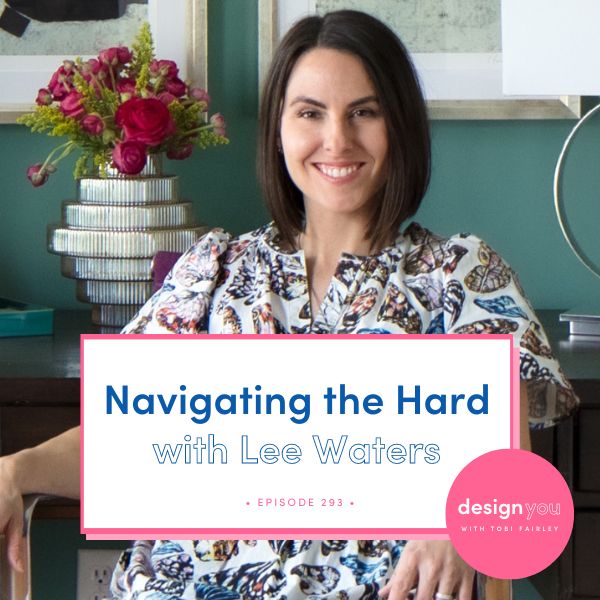
We’re finishing 2023 strong with a few amazing guest interviews, the first of which is my friend Lee Waters. Designers out there are struggling in the current economic climate, navigating “the hard,” and this can be an extremely isolating experience. It’s difficult to bring these conversations to your friends and family, so we’re bringing them to the podcast today.
Lee Waters is a wonderful interior designer from Richmond, Virginia. She’s been a member of Design You and we’ve done all kinds of work together. But I’ve decided to bring her on this week because Lee is an action-taker, which is a quality I adore in people. She’s created courses, she’s launching a podcast, and she’s taking the necessary action to thrive while navigating a tricky season in the interior design industry.
Tune in this week as we pull back the curtain on what taking action and creating success during the tough times really looks like. We’re discussing the importance of being willing to be a beginner and gaining experience, the different kinds of hard that Lee has navigated this year with staff and contractors, and her advice for trying new things and creating a business that will enable you to navigate the hard times you’ll inevitably go through.
Prepare to elevate your social media presence and supercharge your interior design business with our dynamic live 3-part training: ‘Show Up on Social Media Like a Pro!’ Join us as we guide you through the strategies and tactics to shine on social media platforms. Say goodbye to uncertainty and hello to confidence as you learn to engage, inspire, and connect with your audience like never before. Don’t miss this golden opportunity to level up your social media game and take your design business to the next level. Secure your spot now and get ready to make a lasting impact in the digital world!





